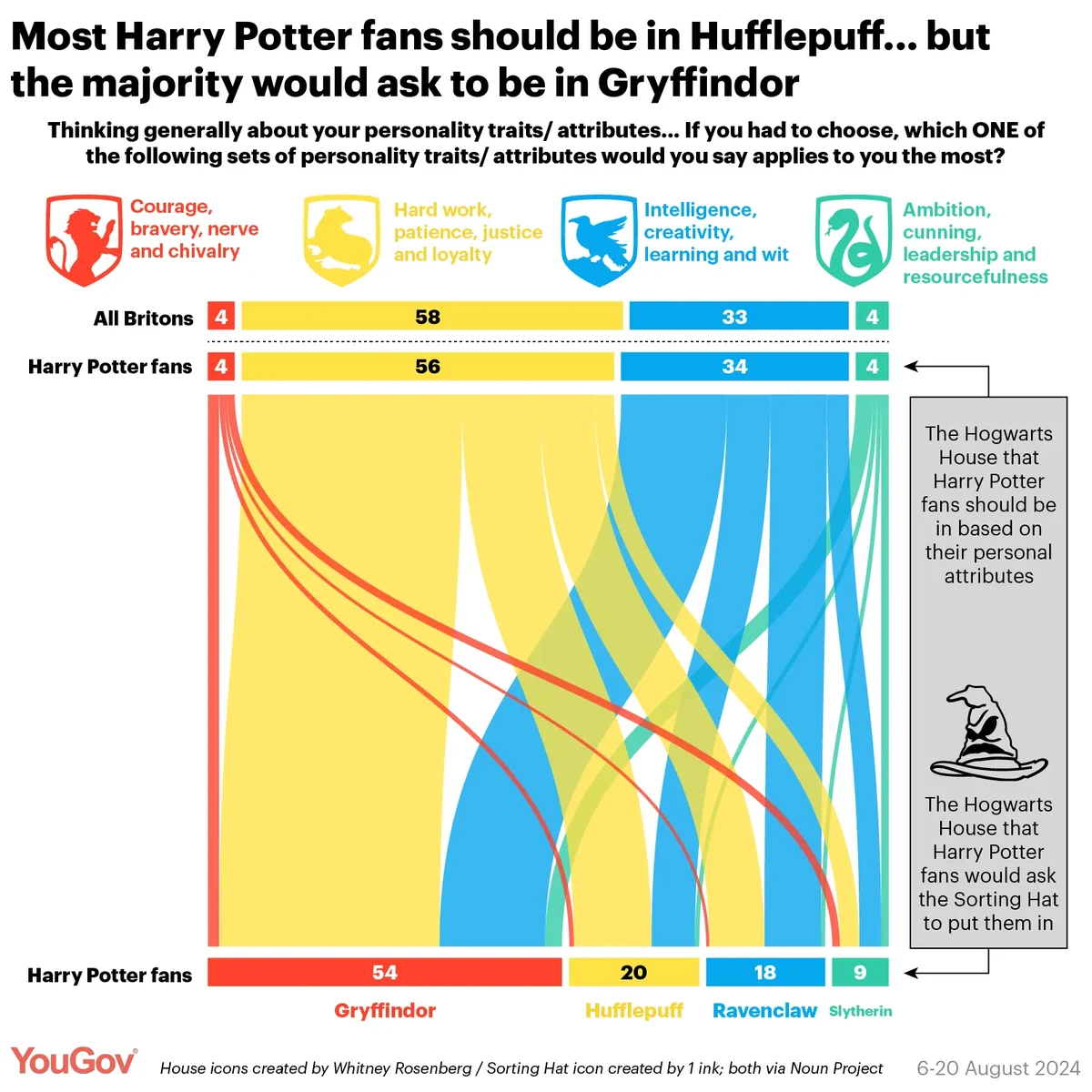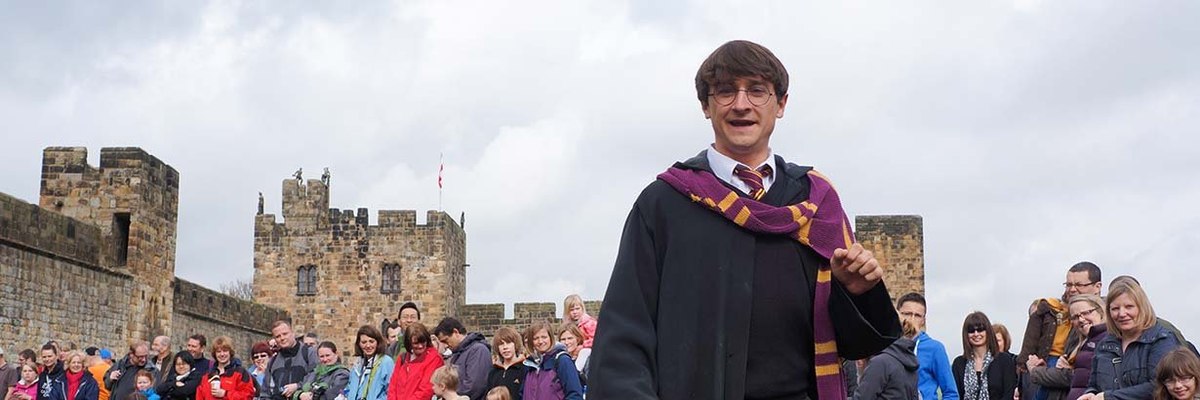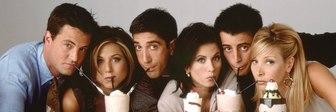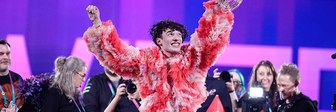Harry Potter is still popular with younger British adults, but its creator is not
Last week, J. K. Rowling revealed that casting is underway for a new adaptation of her Harry Potter stories – this time as a TV series.
A new YouGov survey shows that four in ten Britons (39%) say they would be likely to watch a Harry Potter TV series, including 16% who describe themselves as “very likely”. Among those who are fans of either the books or the movies, 61% say they are likely to watch Harry Potter on the small screen.
The Harry Potter movies prove more popular with the British public than the books – 58% of Britons say they like the films, compared to 47% who like the books. Only 15% say they actively dislike either, however.
The Harry Potter author proves to be slightly less popular than her work. Nevertheless, the British public still tend to have a favourable view of J. K. Rowling: four in ten say that they like her (41%), compared to 31% with a neutral view and 21% who dislike her.
Rowling has famously upset some people with her political views – in years gone by on Scottish independence, and more recently with her gender critical views on the transgender debate.
As a consequence, Rowling is unpopular with the youngest generation – 53% of 18-24 year olds say they dislike her, compared to only 26% of 25-49 year olds, and 7% of the oldest Britons (those aged 65+).
Likewise, the author is much more unpopular with Labour and Lib Dem voters (27-28%) than Tory and Reform voters (7-8%), although in each case more people have a positive view of Rowling than a negative one.
J. K. Rowling also remains popular among those who enjoy her works: 51% of those who like either the Harry Potter books or movies say they like their creator, compared to 21% who dislike her.
Britain continues to be a nation of Hufflepuffs
Seven years ago, for the 20th anniversary of the first Harry Potter book, YouGov took a look at what Hogwarts house the public belong in. Then as now, the results show that Britons are predominantly the scions of Helga Hufflepuff.
Asked to pick the set of attributes that most apply to themselves from those representing each of the Harry Potter houses, 58% of Britons opt for “hard work, patience, justice and loyalty” – the hallmarks of Hufflepuff house.
In second place, on 33%, are “intelligence, creativity, learning and wit” – the characteristics that mark out a Ravenclaw.
Few pick the attributes that signify belonging to the protagonist and antagonist Hogwarts houses: Gryffindor and Slytherin. Just 4% say that Gryffindor’s “courage, bravery, nerve and chivalry” most embody them, while an identical 4% say so of Slytherin’s “ambition, cunning, leadership and resourcefulness”.

Much of the division in public opinion has a generational basis, and Harry Potter house values are no exception – while Hufflepuff characteristics are most valued by the oldest Britons (70%), this falls with each age group to just 33% of 18-24 year olds, who are more likely to favour Ravenclaw characteristics (52%).
Fans of the Harry Potter series will know that the Sorting Hat gave ‘the boy who lived’ a chance to choose his house. Potter chose Gryffindor, with most of his series fans being copycats in this regard – asked explicitly what house they would ask to be sorted into, 54% of those who like either the books or the movies say Gryffindor. A much lower rate of 20% choose Hufflepuff and 18% Ravenclaw, with only 9% picking Slytherin.
What do you think about Harry Potter, J. K. Rowling, and everything else? Have your say, join the YouGov panel, and get paid to share your thoughts. Sign up here.
Photo: Getty











